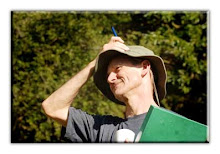So how would you teach science?
"Mike the Mad Biologist" has raised this interesting question on his blog. He is talking from an American point of view but I don't think it is so very different here. I am supposed to be studying science communication so I guess I ought to have a view.
His concern is mainly the level of scientific knowledge among non-scientists - or scientific literacy to use the jargon. I am not sure that formal learning in school with teachers is going to crack this. Even if we pay enormous salaries for teachers, there are only so many subjects that someone can study at school and science keeps on changing and accumulating. I suspect we should be thinking about how non-scientists learn about science all through their lives. School has a part to play but it is probably mostly about attitude and motivation - not knowledge or skills - and what motivates one person may turn another off. Some people will be turned on by the chance to do experiments; others by big ideas; and yet others may appreciate a history of science approach; or seeing science in use. The trick is try and accommodate all these differences and that takes careful planning.
But this then has to be followed up with excellent learning opportunities through life. More and more instituations and individuals do seem to take this seriously with some excellent results - popular science writing, TV, blogs, science centres. The missing elements are connecting people into all these resources, structuring the resources so they are not overwhelming and motivating people to use them.
His concern is mainly the level of scientific knowledge among non-scientists - or scientific literacy to use the jargon. I am not sure that formal learning in school with teachers is going to crack this. Even if we pay enormous salaries for teachers, there are only so many subjects that someone can study at school and science keeps on changing and accumulating. I suspect we should be thinking about how non-scientists learn about science all through their lives. School has a part to play but it is probably mostly about attitude and motivation - not knowledge or skills - and what motivates one person may turn another off. Some people will be turned on by the chance to do experiments; others by big ideas; and yet others may appreciate a history of science approach; or seeing science in use. The trick is try and accommodate all these differences and that takes careful planning.
But this then has to be followed up with excellent learning opportunities through life. More and more instituations and individuals do seem to take this seriously with some excellent results - popular science writing, TV, blogs, science centres. The missing elements are connecting people into all these resources, structuring the resources so they are not overwhelming and motivating people to use them.


0 Comments:
Post a Comment
<< Home